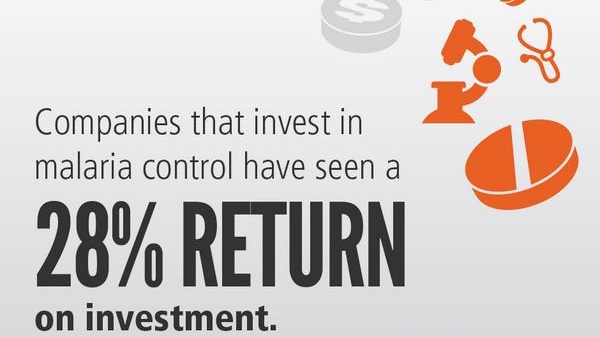
Experts estimate a 60 U.S. dollar return for every dollar invested in malaria prevention in the sub-Saharan Africa.
By Peter Vrooman (U.S. Embassy – Addis Ababa) |
Global progress in the fight against malaria since 2000 has been truly historic and the U.S. Government has played a key role in this progress. The World Health Organization (WHO) estimates that more than 6.8 million malaria deaths were averted worldwide between 2001 and 2015, primarily among children under five years of age in sub-Saharan Africa.
Despite this progress, around the world a child dies every two minutes from malaria. More than 400,000 people will die from malaria this year and the vast majority will be young children in sub-Saharan Africa. This region bears a disproportionate share of malaria’s burden. In 2015, 90 percent of all malaria cases and 92 percent of malaria deaths occurred in the region.
In Ethiopia, progress in fighting malaria has contributed to the remarkable reduction in overall mortality among children under five. From 2005 to 2016, this measure has decreased from 123 to 67 per 1,000 live births as a direct result of collective investment and action by the government, communities, donors and partners.
As we commemorate World Malaria Day on April 25th, we celebrate this success and remain focused working with our partners to intensify efforts and end malaria for good. The U.S. Government has been a leader in the fight against malaria, particularly through U.S. President’s Malaria Initiative (PMI), launched in 2005. The initiative operates in 19 countries across sub-Saharan Africa, including Ethiopia. The initiative is led by the U.S. Agency for International Development (USAID), and implemented together with the U.S. Centers for Disease Control and Prevention (CDC).
READ: Aliko Dangote and Bill Gates: Why We are Hopeful About Improving Health in Africa
Through PMI, hundreds of millions of people have benefited from protective measures and hundreds of millions more have been treated for malaria. In Ethiopia, PMI has procured about 20 million insecticide treated bed nets, 9 million rapid diagnostic tests, and more than 15 million treatments to prevent malaria. PMI also trains health care workers to strengthen their capacity to fight the disease.
Beyond improving child survival and maternal health, malaria control contributes substantially to eradicating extreme poverty and improving educational outcomes. In sub-Saharan Africa, malaria further entrenches poverty and intensifies food insecurity by stealing farmers from their fields and yanking kids out of classrooms. Experts estimate a $60 return for every dollar invested in malaria prevention in the region.
My colleagues and counterparts in Ethiopia work tirelessly every day to combat malaria, but donor resources are not sufficient to reach our targets. We need innovative approaches to financing and increased engagement with the private sector. We must all join our efforts to end malaria in Ethiopia and worldwide, once and for all.
Beating diseases like malaria is the right thing to do. It’s also the smart thing to do.
Source: U.S. Embassy – Addis Ababa
——
Other stories:
- Africa’s Anti-Malaria Efforts Face a New Hurdle – Drug and Insecticide Resistance
- Aliko Dangote and Bill Gates: Why We are Hopeful About Improving Health in Africa
- Former Minister of Health Kesetebirhan Admasu Appointed as CEO of Roll Back Malaria
- Supporting Improved Access to Pharmaceuticals and Services (SIAPS) in Ethiopia: USAID
